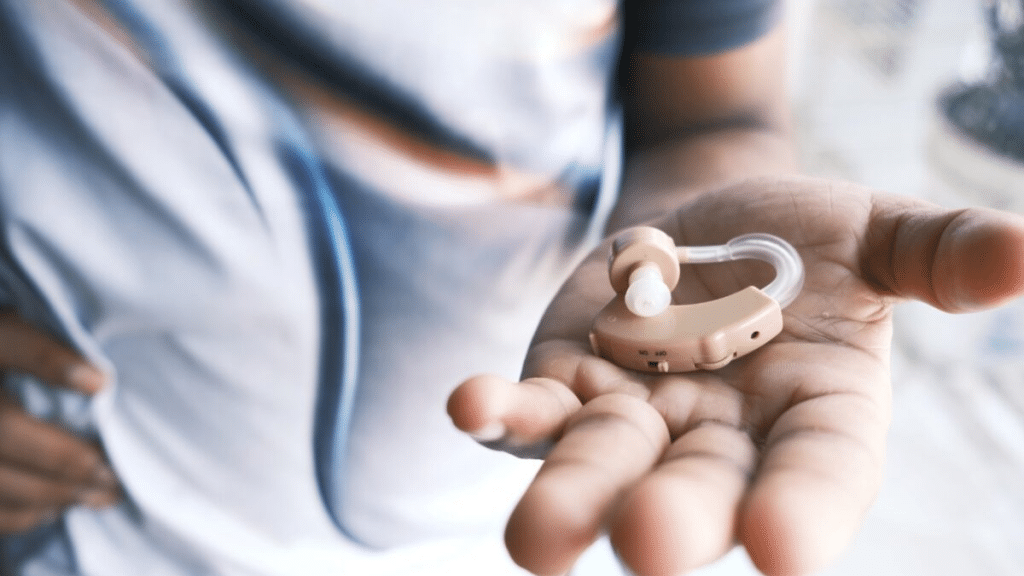When it comes to hearing loss, many people put off addressing it, assuming that it’s a part of the natural ageing process or something that doesn’t need immediate attention. However, untreated hearing loss can lead to far more serious long-term problems than just difficulty hearing. In fact, early intervention—such as using hearing aids—can help prevent a range of physical, emotional, and cognitive issues that could arise down the line. Let’s explore why taking action early is so crucial and how hearing aids can help protect your long-term health.
Preventing Cognitive Decline
One of the most significant reasons to address hearing loss early is its connection to cognitive decline. Studies have shown that untreated hearing loss can increase the risk of developing dementia and Alzheimer’s disease. When the brain isn’t receiving auditory stimuli, it can become less active and, over time, may start to lose its ability to process sounds and language effectively.
Hearing aids provide the brain with the necessary stimulation to keep it engaged. By enhancing your ability to hear and process sounds, hearing aids help maintain cognitive function and reduce the risk of cognitive decline. Early intervention can, therefore, play a key role in preserving your mental clarity as you age. Click on the link to learn about the signs you may need hearing support.
Maintaining Mental Health
Hearing loss can also take a serious toll on your mental health. As communication becomes more difficult, feelings of frustration, embarrassment, and isolation can grow. This emotional strain is often compounded by a reluctance to ask for help, as many people associate hearing loss with ageing or weakness. As a result, individuals with untreated hearing loss may avoid social gatherings, leading to social isolation and increased feelings of loneliness.
Research has shown that those with untreated hearing loss are at a greater risk of developing anxiety and depression. However, hearing aids can help reverse this trend. By improving hearing ability, they allow people to re-engage with others and feel more confident in social situations, leading to a positive impact on mental health.
Preserving Relationships
Communication is the foundation of any healthy relationship, whether it’s with family, friends, or colleagues. Hearing loss can strain these connections, as it becomes harder to follow conversations, catch important details, or engage in meaningful discussions. As a result, misunderstandings and frustration can arise, potentially causing rifts in relationships.
Using hearing aids early can prevent this breakdown in communication. By improving the clarity of speech and reducing the need to constantly ask people to repeat themselves, hearing aids help people stay connected with their loved ones and colleagues. Early intervention allows for smoother, more effective communication, which strengthens relationships and fosters deeper connections.
Avoiding Social Isolation
Social isolation is a common consequence of untreated hearing loss. People with hearing difficulties often withdraw from social situations because they feel embarrassed, frustrated, or overwhelmed by their inability to follow conversations. Over time, this avoidance can lead to a lack of social interaction, contributing to loneliness and depression.
Hearing aids help combat social isolation by making it easier to participate in conversations and activities. With improved hearing, individuals are more likely to engage in social events, maintain friendships, and feel part of their communities. Early intervention allows for a more active, fulfilling social life, which is essential for maintaining emotional well-being.
Hiding a Hearing Aid – Is It Possible?
Nobody likes to admit that they have to wear hearing aids. It can make you feel old and inadequate, as well as self-conscious about your appearance. The good news is that it’s possible to hide hearing aids. Of course, you don’t have to tell anybody that you’re getting them. This can be your secret, and it’s private information. There are also other things you can do to ensure they’re discreet. Let’s take a look at some techniques.
Choose In-Ear Devices
There are various types of hearing aids that you need to be aware of. Some of them are bigger and bulkier than others. This will make them stand out and attract more attention. The best design for subtle is in-ear devices. They’re small and fit inside the ear, being more discreet than earbuds. While you’ll need to get used to handling them, they are becoming popular since you hardly notice them.
Select Your Skin Colour
Often, you’re asked what colour you want your hearing aids to be. While it can be cool to go for something bright and vibrant, such as red or blue, know that these are going to make your hearing aids obvious. If you’re looking for something discreet for your confidence, choose your skin colour. This way, it’s going to blend in with the ear.
Adjust Your Hair
When your hair is in front of your ears, you’re not going to know you’re wearing hearing aids. Therefore, change your hairstyle and have it long. This can help you hide away the devices, and nobody will look directly at them.
Conclusion
Early intervention in hearing loss is crucial to preventing long-term physical, emotional, and cognitive issues. By addressing hearing loss as soon as it’s noticed, individuals can protect their mental health, strengthen their relationships, stay socially connected, and even avoid physical accidents. Hearing aids are a valuable tool in this process, offering a way to maintain your quality of life and stay engaged with the world around you. If you suspect you have hearing loss, don’t wait—take action today and enjoy the long-term benefits of better hearing.

